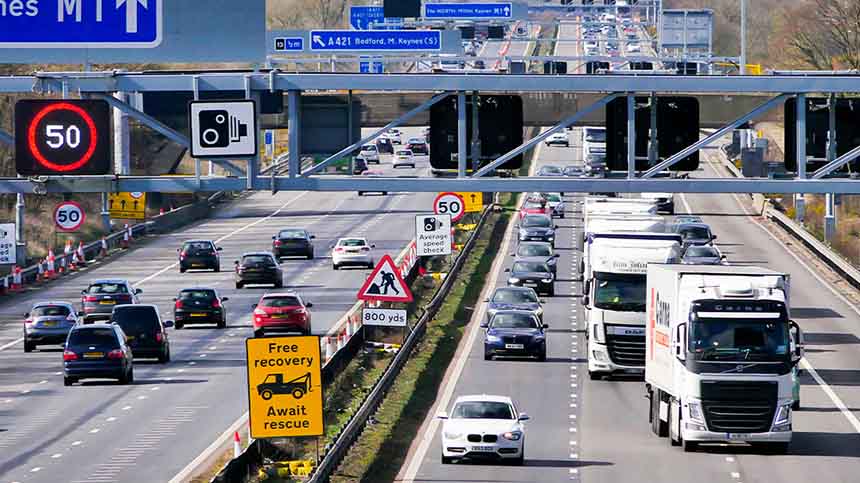AA calls on all political parties to scrap ‘smart’ motorways

The AA today has called upon all political parties to commit to policies which would scrap “smart” motorways. Abolishing “smart” motorways forms a part of the AA’s Motoring Manifesto with the AA having raised concerns over the safety of such motorways for more than a decade.
The desire to scrap “smart” motorways, according to a statement from the AA, is supported by 81% of drivers. In the statement issued today, the AA has set out a number of suggestions including reinstating hard-shoulders and implementing “controlled” motorways.
AA calls for parties to scrap ‘smart’ motorways
Prime minister Rishi Sunak announced in April 2023 that new “smart” motorways would be scrapped. The AA has been historically prominent in this campaign and before the announcement had written to the PM asking him to scrap “smart” motorways.
Ahead of the upcoming UK general election, the AA has called for all political parties to commit to the abolition of “smart” motorways. Furthermore the AA has addressed potential concerns which may arise following their removal, including assessments on congestion and safety. The AA said:
“The AA contends that ‘smart’ motorways were designed as a cost-cutting measure to increase capacity even though it was known at the time and subsequently that there would be greater safety risks. Subsequent governments have glossed over these findings.”
Tackling congestion
The AA’s statement proposes that the abolition of “smart” motorways would not have an impact on congestion levels as more than one third of drivers don’t use the inside lane due to fear that there may be broken down vehicles ahead.
Instead the AA suggests that an improvement in lane discipline is required to cut down on middle lane and outside lane hogs who reduce the effective motorway capacity. The AA suggests that the reinstatement of hard-shoulders should be accompanied by major police campaigns targeting offenders and hard-hitting lane discipline campaigns.
Controlled motorways
Addressing the issue of what should happen with existing ‘smart’ motorways, the AA believes there is a relatively simple and inexpensive solution in the form of converting these motorways to ‘controlled motorways’.
The AA proposes that on the “all lane running” sections of “smart” motorways that the hard shoulder should be reinstated with a Red X and new lane markings. This would bring them in line with the “dynamic hard shoulder” sections.
The objective would be on all these stretches for the hard shoulder to be in place permanently, but the technology (overhead gantries and Red Xs) still would give the opportunity to open this lane to traffic in exceptional circumstances.
The safety advantage is that there would be fewer live lane stops and keeping the emergency areas and overhead technology adds an extra layer of safety. These stretches would then become controlled motorways. The AA stated:
“Controlled motorways with hard shoulders and overhead technology are among the safest roads with reduced live lane stops and incidents. Controlled motorways and Dynamic hard shoulder motorways have lower rates for those killed or seriously injured.”








